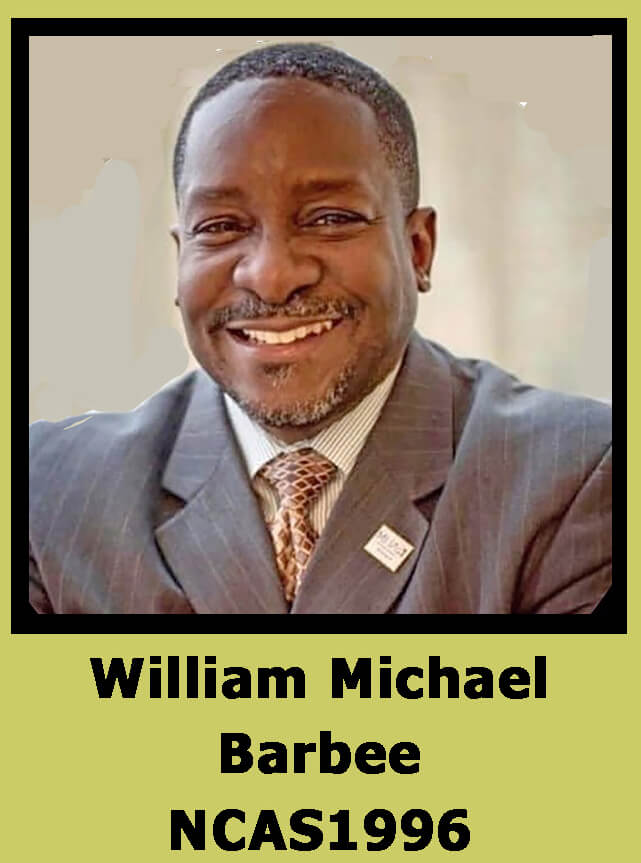William Michael Barbee is a native of Newark, New Jersey and was educated in the Newark Public School System. He attended Arts High School: America’s First High School of Performing Arts, majoring in Fine Art; Jersey City State College, majoring in Biology with a minor in Fine Arts; Rutgers University, graduating with a Degree in Business Management; McAllister/American Academy of Mortuary Science, graduating with a Diploma in Mortuary Science and Funeral Services; and Pillar College Newark, with a Master’s Degree in Clinical Counseling with a concentration on Marriage and Family Counseling, graduating with Honors.
As a proud graduate of Rutgers University Newark, Class of 1997, William Michael excelled personally and professionally in many aspects of his life. Personally, Rutgers gave William Michael the academic structure and support he needed to succeed as a student and business owner. Publicly, he has spoken about how Rutgers’s curriculum and supportive services helped to reshape his cognitive processing. As a direct result of Rutgers’s significance in his life, he was able to rebuild, brand, market, and expand his two transportation companies to four separate transportation entities.
As William Michael excelled in business, he is grateful that he never forgot Rutgers or its impact on shaping his successes. He has been invited to speak to Rutgers students, sit on panel discussions that focused on mental illness within the community and the Rutgers Institute for Women’s Leadership Women In Media, as well as being a featured guest on its WRSU radio station. In 2015, the Rutgers Medical School, in conjunction with Rutgers Behavioral Healthcare Violence Institute, sponsored a movie screening of his film, Beyond The Silence—formerly Clipped Wings They Do Fly (CWTDF). That film was written, directed, and produced by William Michael and was screened in the 2019 Cannes Film Festival Marketplace. CWTDF was on the cutting edge of intentionality in educating the public on the crisis of mental health awareness in the community. Thus, the screening at his Alma Mata, meant the world to him.
In addition to the Rutgers screening and panel discussion on his film, the Rutgers School of Public Affairs and Administration, invited him to speak to their Public Service as Responsible Citizenship classes, where he shared his challenges, experiences, and thoughts as a business leader, public servant, and philanthropist and why it is the responsibility of every citizen to partake in the process of community building. When speaking on how he succeeded in business, he reflected on the summer of 1980, when he and his family were the victims of an arson fire that resulted in the death of two of their loved ones. The fire left his family bruised, penniless, and emotionally scarred. By 1989, he had also become the victim of a carjacking and other life-altering events. The toll of those and other catastrophic trials led him on a downward spiral. A few months after the carjacking, he began therapy for depression.
In his discussions with students he discusses how life is filled with challenges and opportunities. He shares how, at the lowest points during his academic and business journeys, he took advantage of the opportunity and sought professional outpatient counseling services. His therapist, Dr. Shelly Kneiderbach, introduced him to journaling after noticing his inability to express his emotions. Dr. Kneiderbach used different therapeutic techniques to help William Michael’s cognitive processing and to facilitate him in finding his voice to express love, pain, happiness, grief, and sadness. As a result of therapy, William Michael found Purpose in life. He became a very accomplished serial entrepreneur by the time he graduated from Rutgers University and later a published author, film producer, and philanthropist.

